Students and the Big Boss : Xavier Niel, Founder of Free
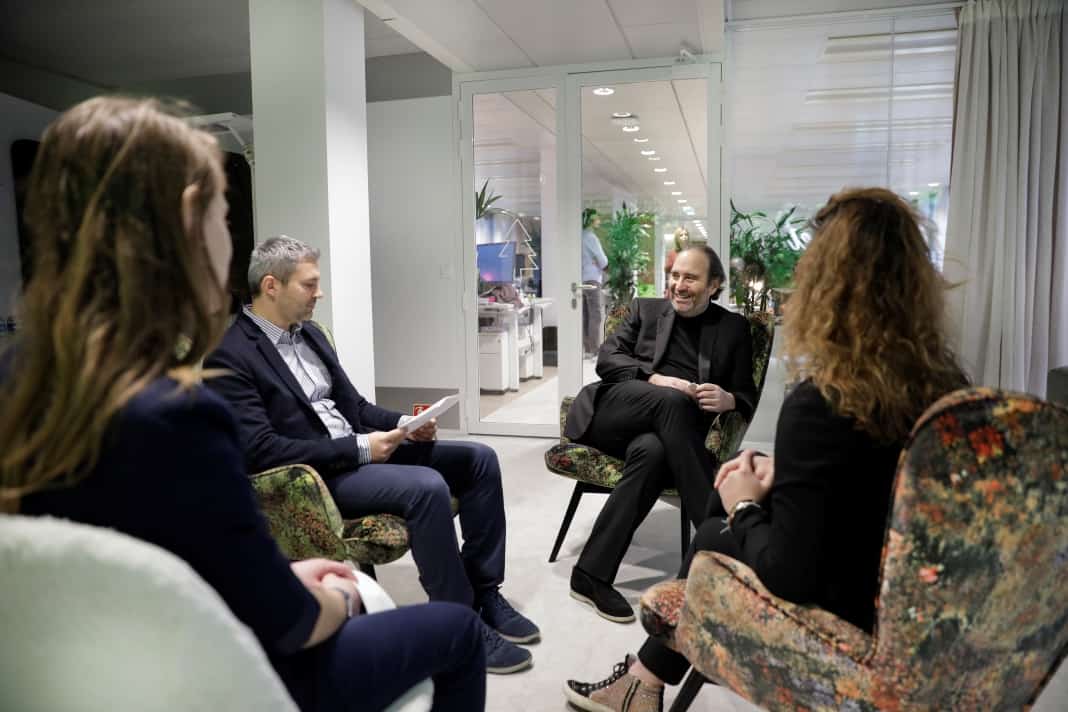
The Big Boss
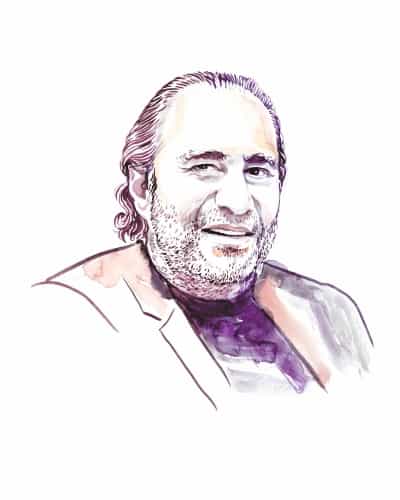
Xavier Niel doesn’t particularly enjoy talking about himself, and that’s a good thing since he has little time to do so. Nevertheless, when three HEC students asked for a chance to interview him, he accepted immediately. He arrives for the meeting not a minute late and, after sending a final message, he puts his iPhone on the floor so that he won’t touch it for an hour. Confronting students who don’t hold back, he never responds automatically but instead thinks about his answer to every question as though no one had asked him this before. At 51 years old, this dynamic founder of Free, who made a name for himself as a game-changer in the Internet-services-provider (ISP) and mobile-telecom markets, is clearly passionate about his profession and driven by a desire to get things done.
Currently Vice President of the telecom group Iliad (and with a personal fortune estimated at 9 billion euros), Xavier Niel believes in the future, supports young companies and promotes instruction in computer programming. He is happy to comment on the growth of Station F, the world’s biggest incubator for start-ups, launched in Paris’s 13th district in 2017, and École 42, his digital-development training center. He also talks about his taste for telecoms, a sector in which he has been involved since 1980, and reveals what motivates him every day.
As Free has just launched its latest offering, Freebox Delta, and can barely keep up with demand, the discussion turns to an assessment of all his projects and includes a rare moment of introspection for this big boss who has never stopped being an entrepreneur.
The Students
-
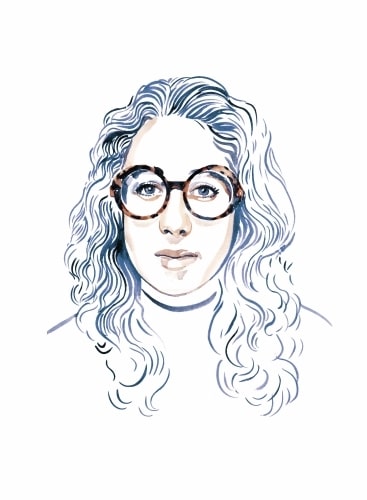
India Fourcade, H. 22
Treasurer of the Arts Bureau (BDA). Passionate about the arts (music, painting and theater) and the world of start-ups, she is a member of the association Start’HEC.
2015 Baccalaureate diploma in science, ranked “excellent”. Studied in preparatory classes at Montaigne (Bordeaux) and Ipesup (Paris). Interested in geopolitics and philosophy.
2018 Began studying at HEC, while at the same time pursuing a diploma in art history at the Sorbonne -

Angélique Sorba, H. 21
General Secretary of KIP, student media of HEC Paris. Passionate about the media world, issues relating to digital security, and protecting against identity theft. 2017 Began the “Grande Ecole” program at HEC Paris
2018 Began a parallel course of study in law at Panthéon-Assas 2019 Enrolled in an intensive journalism program at the Center for Journalism Training (CFJ) -
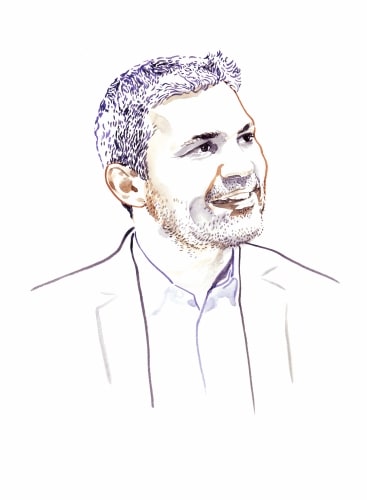
Liviu Teodorescu, MBA. 19 Fascinated by computing for as long as he can remember, he has participated in the transformation of the telecom sector in Eastern Europe and West Africa.
2008 Master’s in information security at the Academy of Economic Studies in Bucharest 2010 Handled projects in the restructuring of Malivision, a for-pay television service in Mali
2018 MBA HEC in digital innovation
“Telecoms are the basis of everything in the new economy.”
Free and telecoms
Liviu Teodorescu (MBA.19): With Free, you revolutionized the telecom sector by launching the first box, then unlimited mobile-phone calls and low-cost Internet access. Now that this revolution is behind us, are there any new telecom challenges to be faced?
Xavier Niel: There are still “geographical” challenges. We should keep in mind that a service that costs a few dozen euros per month here in France might cost you $150 per month in the United States, for example. In addition, technologies continue to evolve. After fiberoptics and 4G, we’re now getting ready for 5G. But really, I don’t think we’ll soon see the same kind of revolution that the arrival of the Internet was. At least, I can’t imagine anything like that right now.
Liviu Teodorescu: I’m from Romania, where web access is both cheaper and better. Do you think that the current state of telecoms in France will hold back the development of the digital economy?
Xavier Niel: I know that certain areas lack good coverage, but I don’t think France has an infrastructure problem overall. We’re mostly well equipped. Concerning prices, we have the reputation of being the cheapest in Europe and according to the Worldwide Broadband Speed League 2018, Romania has the fifth-fastest network in the world, while France is in 23rd place. One of the cheapest in the world, if we compare Internet costs to average salaries. This is because of very strong competition among operators. In Paris, there are four fiberoptic networks, so a consumer has choices
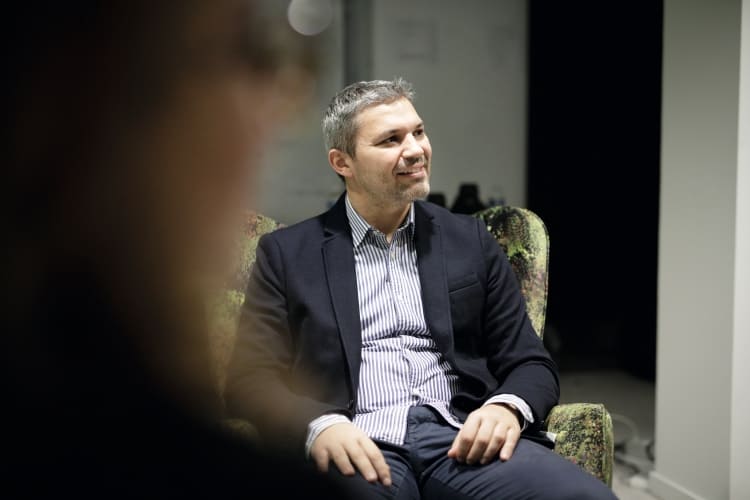
Liviu: Other operators, like Orange and Canal+, have made significant investments in Africa. Do you plan to develop your activities on that continent?
Xavier Niel: Free is only present in France and Italy. At the moment, there is no plan to enter the African market. On the other hand, I have invested personally in telecom companies in around 15 countries, including Senegal and the Comoros. There are enormous opportunities: the telecom sector is really booming in Africa right now.
Liviu: The telecom industry doesn’t have a very sexy image: margins are going down and newcomers, like Netflix, are capturing added value by offering innovative services. The future doesn’t look very bright.
Xavier Niel: Yes, but you realize that if telecoms disappear, Netflix will, too? So, we still have some power and influence. We are the basis of everything in the new economy, which depends on us just as we depend on electricity infrastructures. So, maybe not sexy, but vital. As for myself, I really love this profession. We shouldn’t be swayed by people’s prejudices: deploying and managing communications networks is truly exciting.
Liviu: Yes, operators are important, but they have turned into simple utilities, just suppliers of pipelines….
Xavier Niel: Only because they haven’t been very good at other things. They haven’t created terminals as attractive as those of Apple or Samsung, or a search engine as efficient as Google. There was an effort to create services, for example when WAP portals were launched, but those quickly became outdated. This doesn’t mean that the sector isn’t attractive: data consumption is booming in every country. There are still lots of growth opportunities.
India Fourcade (H.22): I’m from the Dordogne, and where I live, Internet connections are bad. Can’t you do something about this? More generally, will Free ever replace Orange all over the country, including in rural areas?
Xavier Niel: Replace Orange! You’re going a little too far there! As for coverage, you have to understand the context. The state sells rights to use mobile frequencies through a bidding system. For a long time, operators paid fortunes for these licenses and then they could deploy their networks wherever they wanted. In 2015, the deal changed. The prices for frequencies dropped significantly, but in return operators have to commit to covering zones that are inadequately served. This is a smart idea, and one that will eventually result in the whole country being covered; that’s for sure. Maybe this will take a decade, but eventually connections will be possible even in the middle of a forest. But first, we need to share the network. After all, we aren’t going to install four different networks in the middle of a forest for just a few mushroom-pickers per year.
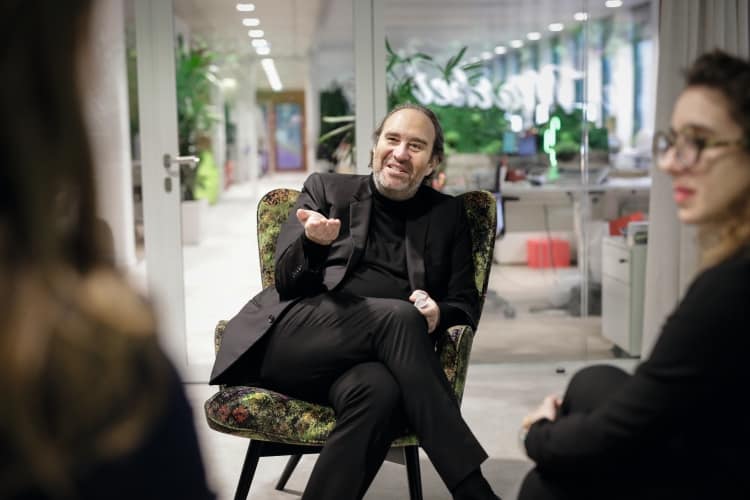
“Digitalization makes it possible to launch something from zero in any sector.”
India: You brought about an earth-shaking transformation of the French telephony sector. What do you think will be the next market to be disrupted like this?
Xavier Niel: Hard to say. Concerning telephony, Free initiated a pricing revolution, but there are many other ways to “disrupt” a sector. The founders of Uber didn’t really change prices of taxi rides; instead they created a taxi service. At the beginning of the 2000s, Wireless Application Protocol (WAP) portals made it possible to access simplified web services via mobile telephones that’s more fun and simple to use. That’s what made them successful. It’s the same for Airbnb. Digital technology makes it possible to launch something from zero in any sector, without being held back by preconceived notions or the burden of what has been done before. It’s a vast breeding ground for creativity. It’s hard to predict what will grow out of the imaginations of tomorrow’s entrepreneurs.
India: So go for it!
Xavier Niel: OK, if I had to take the plunge, I’d say energy. It’s an exciting sector and one of the rare ones where we consume the product non-stop. But I really have no idea how to do that.
India: It’s still infrastructure. The kind of market that’s rather protected, isn’t it?
Xavier Niel: It’s true that infrastructure requires long-term planning and significant investments. But no one can escape it. And, competition authorities are making sure that it stays that way.
Station F and École 42
Angélique Sorba (H.21): Your huge start-up incubator, Station F, will soon celebrate its second birthday. Now that it’s a bit less trendy, can you tell us: Does it work or not?
Xavier Niel: I wouldn’t call it trendy, or if it is, it’s a lasting trend. My goal was to create an ideal environment for people launching start-ups, as well as draw attention to the French entrepreneurial ecosystem and encourage people from all over the world to join in. And I think it’s been successful, don’t you? In any case, the campus has been full since the first day. So much so that we only accept around 9% of the candidates who apply. And – don’t be offended – it was really important to me that our recruitment went beyond the stereotype of “young man from a good family who has a diploma from HEC”. That has also worked well, because 35% of the start-ups based at Station F were created outside France, and 40% of them were created by women.
Angélique: But do the start-ups that have gone through Station F succeed better than others?
Xavier Niel: It’s too early to say. We’ve seen some fund-raising, promising results, and successful “exits”, but we can’t judge a start-up’s success after only 18 months. We’ll see in a year or two. For now, we can say that enterprises with an office at Station F get more media coverage than others. This is because the place has developed a strong identity, our communications efforts have been effective, and journalists want to come there to “shop” for stories. It also indicates that we have made the right choices of start-ups.
Angélique: On Station F’s first birthday in June last year, you said – and it made an impression on me – “When I come here at night, I find that there aren’t very many people.”
Xavier Niel: Oh yes, and how I’ve been yelled at for that comment! When I started out, I studied during the day and worked at night. I worked for two eight-hour stretches back-to-back; I never stopped. So, when I visited Station F one night, I thought I’d see 4,000 people hard at work, but I only found 50. But maybe styles have changed, to put it simply. Entrepreneurship has become a more comfortable life choice than it used to be. It’s also possible that I was wrong. Maybe people are more successful if they get more sleep.
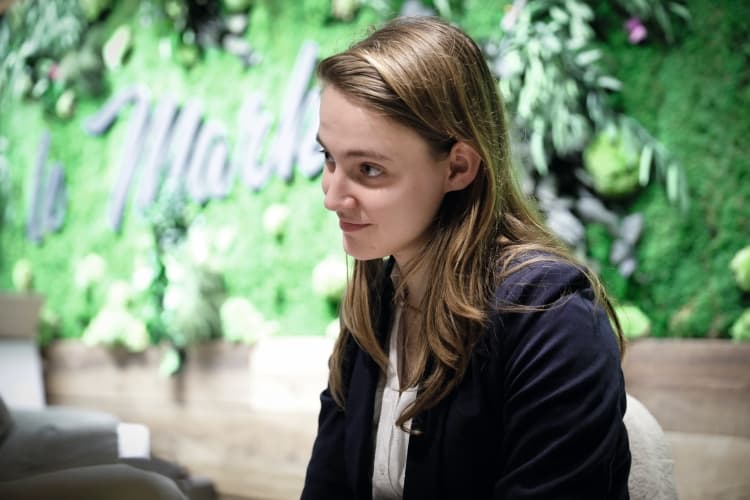
Angélique: I read on the Internet that École 42 prioritizes helping young people from disadvantaged backgrounds. Would you say that this is a social-services project?
Xavier Niel: 42 welcomes people from all backgrounds. I won’t say who he was, but the son of a minister in the previous government studied at 42. What’s for sure is that the selection process does not consider anyone’s social background. Applicants have to do well on a test of logic that assesses common sense, and to prove that they are motivated. We ask for your family name, your first name and your date of birth, and we give you the test. So, everyone starts out on the same footing. And yes, around 40% of our students haven’t obtained the baccalaureate diploma; they are school drop-outs.
École 42’s type of selection process and its educational system without professors allow for correcting some of the social inequalities in education. Of course, it’s not yet perfect. We haven’t yet achieved full equality, but we’re making progress: 26% of the candidates who got through the first selection process are women. And, the school is now run by a woman, as is Station F, by the way.
Angélique: Do you encourage your children to learn about coding? Is computer programming a basic skill?
Xavier Niel: Yes, knowing how coding works and why it exists is basic knowledge. At least, it’s part of our general knowledge and is necessary for anyone with a little ambition these days. In addition, it makes you structure and synthesize your thinking in a logical way. So, yes, I hope that my children will be able to code and will be good coders.
Entrepreneurship in France
Angélique: We conducted a survey at HEC last September. Of the 535 students we questioned, only 6% said they were “certain they would try to create their own company after graduating from HEC”. This was the first time we had conducted this survey, so we can’t compare the results to the previous year, but we think this percentage is really low…
Xavier Niel: Anyone graduating from HEC or Polytechnique has received excellent training and is sure to find a desirable job with a good salary. Becoming an entrepreneur means taking a risk, and you have more to lose.
Angelique: At Station F, the average age of people launching start-ups is 30. You began at age 18. Do you think that young French people are less likely to become entrepreneurs than in the past?
Xavier Niel: The best time to create a start-up is the time when you are less at risk. This is generally when you’re enjoying the cozy comfort of being a student, and the first years after you graduate. Later on, you begin to have a family life and it’s harder to manage. I admit that this average age of 30 is the figure that surprised me the most at Station F. Moreover, in my talks I tend to use the word “young” a lot, and I shouldn’t. There’s an entrepreneur at Station F who’s in his 70s. You can create a company at any age, if you’re young in spirit.
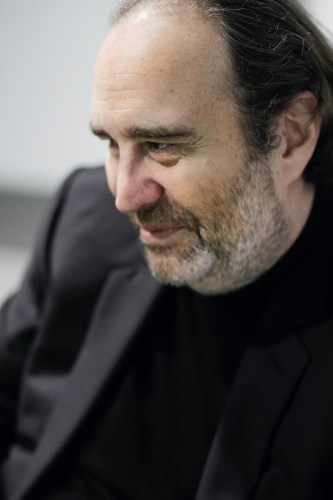
1984 Created Minitel Rose (Pink Minitel), at age 17
1987 Abandoned preparatory school to devote himself fulltime to entrepreneurial activities
1990 Created Iliad
2002 Launched the “Freebox” and inaugurated France’s first “triple play” offers
2010 Co-founded Kima Ventures fund
2012 Launched Free Mobile
2013 Co-founded École 42, free training in computer programming
2014 Announced the creation of the world’s biggest incubator of young start-ups, in the Freyssinet halls in Paris’s 13th district
2016 Opened the US branch of 42 in the Silicon Valley
2017 Inaugurated Station F with the participation of French president Emmanuel Macron
India: You’re promoting innovation in education, of the kind that 42 offers. At the same time, many worry about a loss of knowledge of basic skills, like writing and math. Is this a contradiction?
Xavier Niel: No, we need to innovate in the way we teach, not so much in the content. At 42, we let students learn on their own and by helping each other, as if they were playing a game. This is working very well, even among students who failed in traditional schools. In addition, this kind of instruction can foster autonomy and an entrepreneurial spirit. More than 30% of our students eventually create a start-up.
India: Do you think this model could be used beginning in middle schools or secondary schools?
Xavier Niel: I think in any case that it’s suitable for anyone who is falling behind. I began a preparatory program in advanced math and quickly abandoned it. Eight hours of demonstrations at a blackboard were hell for me. Just because someone can’t handle those huge formal classes doesn’t mean the person has no talent.
India: What’s your opinion of giving unemployment benefits to French entrepreneurs, allowing them to receive financial support as they are creating a start-up? Isn’t this contradictory to the spirit of entrepreneurship, which usually means not having a safety net?
Xavier Niel: It’s true that many people launching start-ups are receiving this kind of unemployment support at the same time. It could be seen as a misuse of the system, but if it encourages people to create start-ups, I’m not upset about it. The problem in France is that we help entrepreneurs a lot in the first phase of business creation, but once they’re thrown in at the deep end, they discover that they’re on their own. They complain, understandably. On the other hand, in another country their businesses might have never been created.
Niel in his own words
India: Apparently you often go down into Paris’s catacombs. What are you looking for?
Xavier Niel: I’ve been going there since I was 16, always with my buddies. We can meet, walk around, talk… and down there, we’re not disturbed: there’s no telephone service.
India: At the same time, you’re on Free, aren’t you?
Xavier Niel: Yes, and it works really well. But above ground.
India: So it’s a way for you to cut yourself off from the world?
Xavier Niel: I don’t know. Now that you mention it, maybe I should talk this over with a shrink!
India : On vous voit souvent en jeans, chemise, baskets…
Xavier Niel: Today, I put on a suit in honor of HEC! But, I didn’t shave. Sorry.
India: …and with a smile on your face. Basically, you’re an optimist?
Xavier Niel: Absolutely! In fact, I’d say that’s a necessity if you’re going to be an entrepreneur. If you launch a start-up and you begin to imagine all the problems you might have, you’re going to give up very quickly. As for the white shirt and jeans, this allows me to get dressed every morning without thinking very much about what I’m going to wear. This saves me five minutes, easily.
India: No doubts, no fears?
Xavier Niel: Like everyone, I have them, for example for my children. But I don’t nurture this fear. When we’re afraid, we don’t do anything anymore.
India: What motivates you most? What makes you want to get up in the morning?Xavier Niel : Les télécoms. Sincèrement. Je sais, je suis peut-être le seul à aimer ça…
Xavier Niel: Telecom. Truly. I know, I’m probably the only one who loves it.
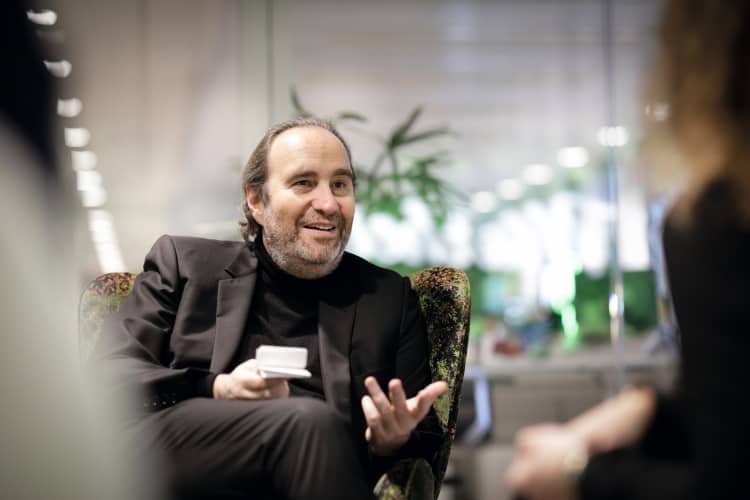
India: At the beginning of your career, you achieved success with the Minitel Rose. Do you regret starting out with that?
Xavier Niel: That’s funny that you would ask me that question, because, given your age, I’m pretty sure that you barely know what the Minitel was! The Minitel Rose has a pretty shady reputation and I’m not going to fight against that. My associates and I had a lot of fun. We imagined lots of different services that worked well, like directories, insurance… We were able to learn a lot. I don’t regret it.
India: Where do you see yourself in 30 years?
Xavier Niel: Uh…dead?
India: OK. So we’ll reconsider that optimism.
Xavier Niel: To tell the truth, I have no desire to stop working and I don’t have any other plans in mind, so I hope I’ll still be doing what I’m doing today.
India: Do you have a message to pass along to HEC students?
Xavier Niel: We’ve already said it all, haven’t we? They’re too lazy, they don’t work at night enough, and they aren’t creating enough start-ups. I’m teasing you. I really appreciate the HEC graduates who are working at Station F. In fact, the 6% who say they are certain that they want to create a start-up are welcome to join us!
- 1 According to the Worldwide Broadband Speed League 2018, Romania has the fifth-fastest network in the world, while France is in 23rd place.
- At the beginning of the 2000s, Wireless Application Protocol (WAP) portals made it possible to access simplified web services via mobile telephones.
Published by Thomas Lestavel

